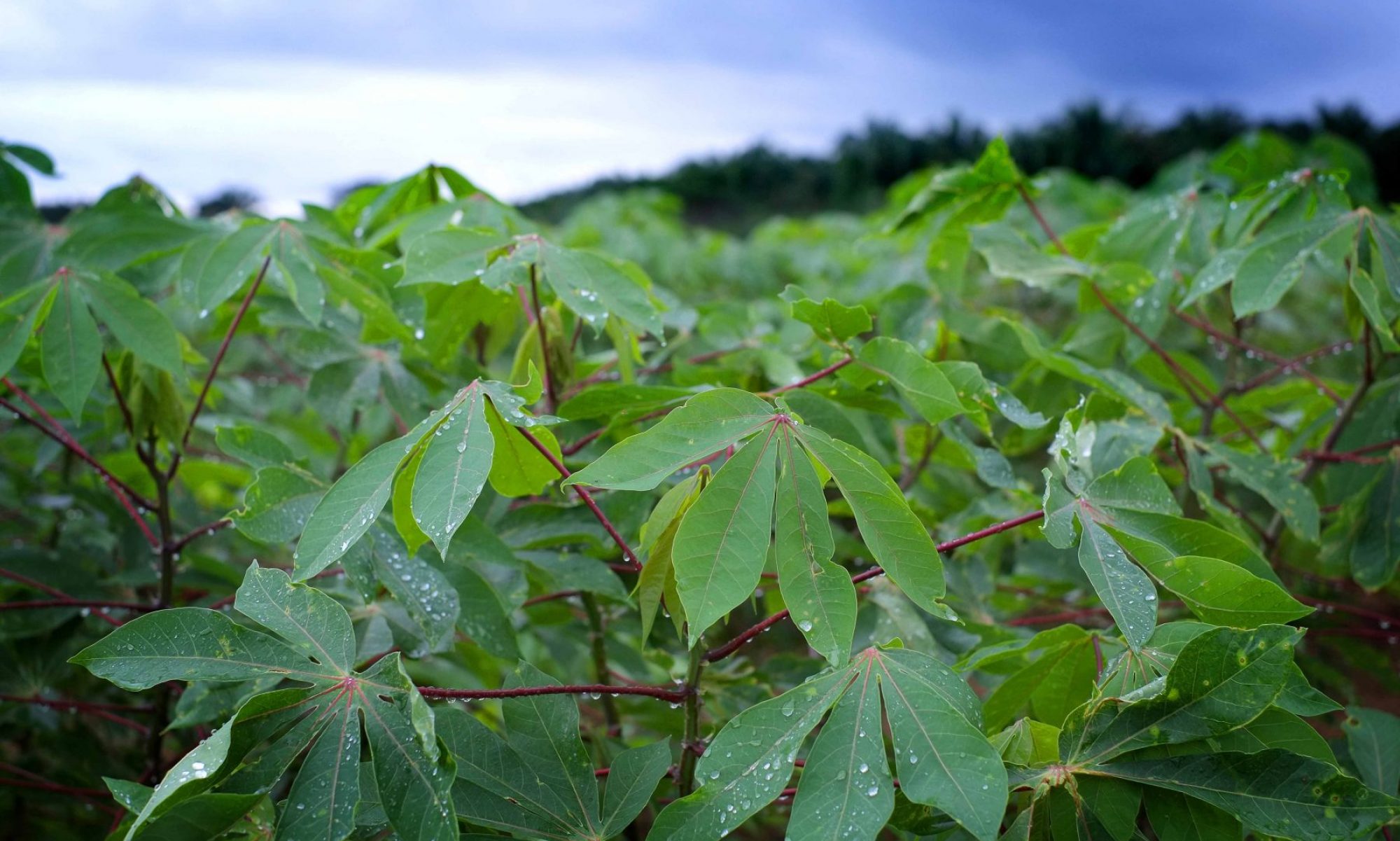Testing effectiveness of biotechnologically produced AMF on a wide range of crops
For many reasons, we believe that biotechnologically produced AMF inoculum offers the best opportunity for success and also safety to the farmer. This is because of the lack of unwanted microorganisms and because the concentration of the product means that transport costs are small. But such AMF products are grown in the lab rather than in a natural situation. We have/are testing whether biotechnologically produced AMF really work in the field on a wide variety of crops and a wide variety of different soils in Colombia including potato, Physalis, cassava, oil palm and rice. We are not funded directly by grants or private companies for this part of our work and we rely heavily on the good will of small farmers and large companies to conduct this work. See the animation to the right about how AMF can help maintain potato yields while greatly reducing phosphate fertilizer applications.
Cassava for food security and sustainability in Colombia
This is a Swiss – Colombian project funded by the Swiss National Science Foundation and the Swiss Agency for Development & Cooperation (SDC)
Read the overview below or for specific details on projects click on one of the following links:
- The effectiveness of genetically different AMF on cassava in Los Llanos (with National University of Colombia and Universidad de la Salle, Utopía Campus)
- The population dynamics of introduced AMF inoculum and interactions with the native AMF community
- An evolutionary approach to finding more effective AMF: Getting AMF from wild cassava in the Amazon
Overview: The Eastern Plains region of Colombia is a large tract of tropical savannah covering approximately 17% of the Colombian land mass. It is an agriculturally poor region where current agricultural practices of cattle ranching are associated with poor soil fertility and low productivity. In the last few years, large rural post-conflict regions with considerable socio-economic problems have come under immediate administrative control of the Colombian government. The Eastern Plains (Los Llanos) is one of the largest post-conflict regions. In Colombia, agriculture represents a very important part of the economy. In an attempt to economically stabilize the region the government has developed a regional plan for the Eastern Plains. This includes, where possible, converting pasture land into cropping systems that provide food security for the growing Colombian population and reducing poverty in the region.
Cassava is the key crop in the regional plan for economic development and stability. However, cassava is a plant that is almost completely dependent on a symbiosis with arbuscular mycorrhizal fungi (AMF) to efficiently obtain nutrients and grow. AMF have already been shown to greatly enhance cassava yields in the field, even when added to soil that already contains AMF. They also allow farmers to reduce fertilizer inputs and use much cheaper sources of phosphate. However, to realistically use AMF to increase cassava yields and make cassava cropping more profitable, it is necessary to inoculate with native AMF in a sterile based carrier, with low transport costs. Our project seeks to isolate native AMF from soils in the eastern plains and from the roots of cassava in native undisturbed populations, screen them for effectiveness in increasing cassava yields and then put some of the most effective ones into a clean sterile culture system on artificial media for mass production. These AMF isolates will be used as inocula in field trials. Because cassava is so mycorrhiza-dependent, we also propose to screen the genetic diversity of cassava for mycorrhizal responsiveness, which has never been undertaken in international cassava breeding programs.
Dissemination of results: The results of the project will be disseminated within the framework of the socio-economic plan for the region developed by the National University of Colombia’s Institute for Studies in Orinoquia. The information will be disseminated to agronomists, farmers and land-owners in the region. Dissemination of information will be conducted with CLAYUCA; which is a Colombian based organisation for helping transfer of technology to cassava growers in the whole of latin America and the Caribbean.
The project seeks to help reduce improper land-use in a very large region, increase food and food security for the expanding Colombian population and reduce poverty and help to promote peace through economic stability in this post-conflict region. The project respects all the Swiss Agency for Development and Cooperation’s and the Swiss National Science Foundation’s expectations regarding gender balance, the “do no harm” ethics principles and is respectful of the environment and indigenous peoples (see ethical statement for more details).
